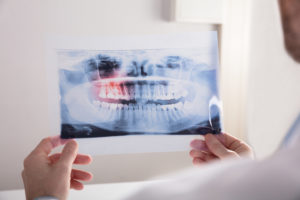
As many grandparents and older relatives like remind their younger family members: with age
What are Wisdom Teeth?
While most of our permanent teeth grow in when we are still quite young, wisdom teeth erupt long after all our baby teeth are gone. The third and last molars on each side of the jaws, wisdom teeth typically erupt when a person is between the ages of 17 and 21. However, their late arrival can spell trouble for the mouth and jaw.
Why Are Wisdom Teeth Often Removed?
Because wisdom teeth grow in during one’s teenage years or early twenties, there is often very little space left in the mouth to accommodate them. For this reason, wisdom teeth can often be impacted, meaning they:
- Erupt at a sideways angle
- Only partially erupt through the gums
- Become trapped beneath the gum line
Impacted wisdom teeth can negatively impact one’s health. Some problems linked to wisdom teeth include:
- Higher risks of infection
- Facial swelling
- Painful crowding
- Bite problems
Wisdom Tooth Extraction: What to Expect
If the wisdom teeth are already causing pain, or to prevent future problems, a dentist will usually recommend taking them out. Extracting one wisdom tooth typically takes only 5 to 30 minutes.
Local anesthesia or sedatives are usually employed to ensure the procedure is painless. However, this also means the patient should have someone prepared to drive you home after the surgery.
Some swelling of the cheeks and jaw afterward is not uncommon, and it may be difficult to eat certain foods immediately after treatment. However, the
Is Extraction Always Necessary?
Not all wisdom teeth have to be removed. If third molars erupt in an upright and functional position and do not cause any pain, then extraction may be unnecessary.
However, teeth removed before age 20 have less developed roots and fewer complications. For this reason, the American Dental Association recommends that people between ages 16 and 19 visit their dentist to have their wisdom teeth evaluated. Digital X-rays can help your dentist determine before the wisdom teeth have erupted if they will likely cause problems. If so, extraction may be recommended as a preventive measure.
So, don’t wait until your child’s wisdom teeth come in – or try to – to contact the dentist. Avoid the pain and other complications that come with impacted wisdom teeth by being proactive and picking up the phone today.
About the Author
With over 25 years of experience, Dr. Hube Parker has helped generations of patients achieve happy and healthy smiles. Along with the expert team at Parker Dental & Orthodontics, Dr. Parker provides quality care in a comfortable environment that puts patients at ease. Individuals who want to know more about wisdom teeth extraction can visit the Parker Dental & Orthodontics website or call the office at 251-634-2341.

